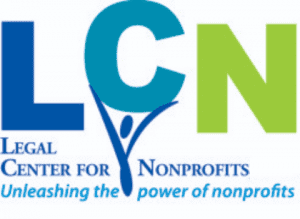Admittedly, starting a nonprofit these days is easy enough—at least in terms of the paperwork. With the advent of online filing for corporate status and the 1023-EZ for 501(c)(3) status, the “paperwork” can be done almost immediately. But just because you can, doesn’t mean you should. Here are four questions to consider before moving forward.
1. What is the nonprofit’s purpose?
The first, most essential question is “Why?” Why will the nonprofit exist? Assuming the nonprofit will seek 501(c)(3) tax-exempt status, he nonprofit’s “reason for being” must be within the meaning of section 501(c)(3) of the Internal Revenue Code: religious, charitable, scientific, testing for public safety, literary, educational, or prevention of cruelty to children or animals. However, within these broad categories, the courts and the IRS have found a range of subcategories, like arts, for example. Your idea must fit somewhere within these categories.
The common denominator among these purposes is that the organization must serve a public interest, not a private interest. The nonprofit can’t be focused simply on providing employment for the founder, or services to one individual or family. Its vision must be far broader than that.
2. Who benefits from the nonprofit’s work?
The beneficiary of a nonprofit’s work—the recipients of its services, participants in its programs—must be the public or a large, indefinite subset of the public, referred to as a “charitable class. This can be the general public, homeless people, children, elders, etc. One individual, or five individuals, or even twenty-five individuals are unlikely to satisfy this requirement because the concept of charitable class is based on the idea that an unknown number of individuals will benefit from the work of the nonprofit.

3. How is the nonprofit funded?
Before starting a nonprofit, you must consider how it will be funded. Competition for charitable dollars is tough, and the founder most likely to succeed is the founder who addresses this problem early on. When I ask about this, people often tell me, “We’ll get grants.” But depending on grants is unrealistic, because of the nature of grant-making, rooted as it is in the priorities of grant-makers, who are seeking specific impacts. Successful nonprofits seek diversity in funding streams, with budgets reflecting a variety of funding sources, such as fees for services and merchandise sales, in addition to grants and private donations. Dependence on only one type of funding results in devastation if that funding stream dries up.
4. Who runs the nonprofit?
Unlike a for-profit, which truly can be a one-person operation (sole proprietorship or even a corporation), nonprofits are managed by a board of directors, usually three or more individuals. This is a matter of state corporate law, which specifies the number of directors required for a nonprofit corporation. Federal law isn’t specific on this point. However, as noted above, a charity must serve a public rather than private interest, and having a small board of one, two, or three people can suggest that the organization is more likely focused on private interests. What’s more, in practical terms, running a nonprofit is a lot of work—a larger board (but not too large!) means more help getting things done.
For nonprofit founders, the primary concern is usually who actually controls the nonprofit’s activities. Since the law gives authority over the nonprofit to the board of directors, the board has oversight and responsibility for the nonprofit’s policies and operations. Control of the nonprofit should not be in the hands of any one person. Once you have clear answers to these questions, you’re ready to move on to the next step—incorporation (or not?). Stayed tuned…
The foregoing is provided for information and educational purposes only and does not constitute legal advice. Consult an attorney or accountant for advice regarding your organization’s specific situation.
